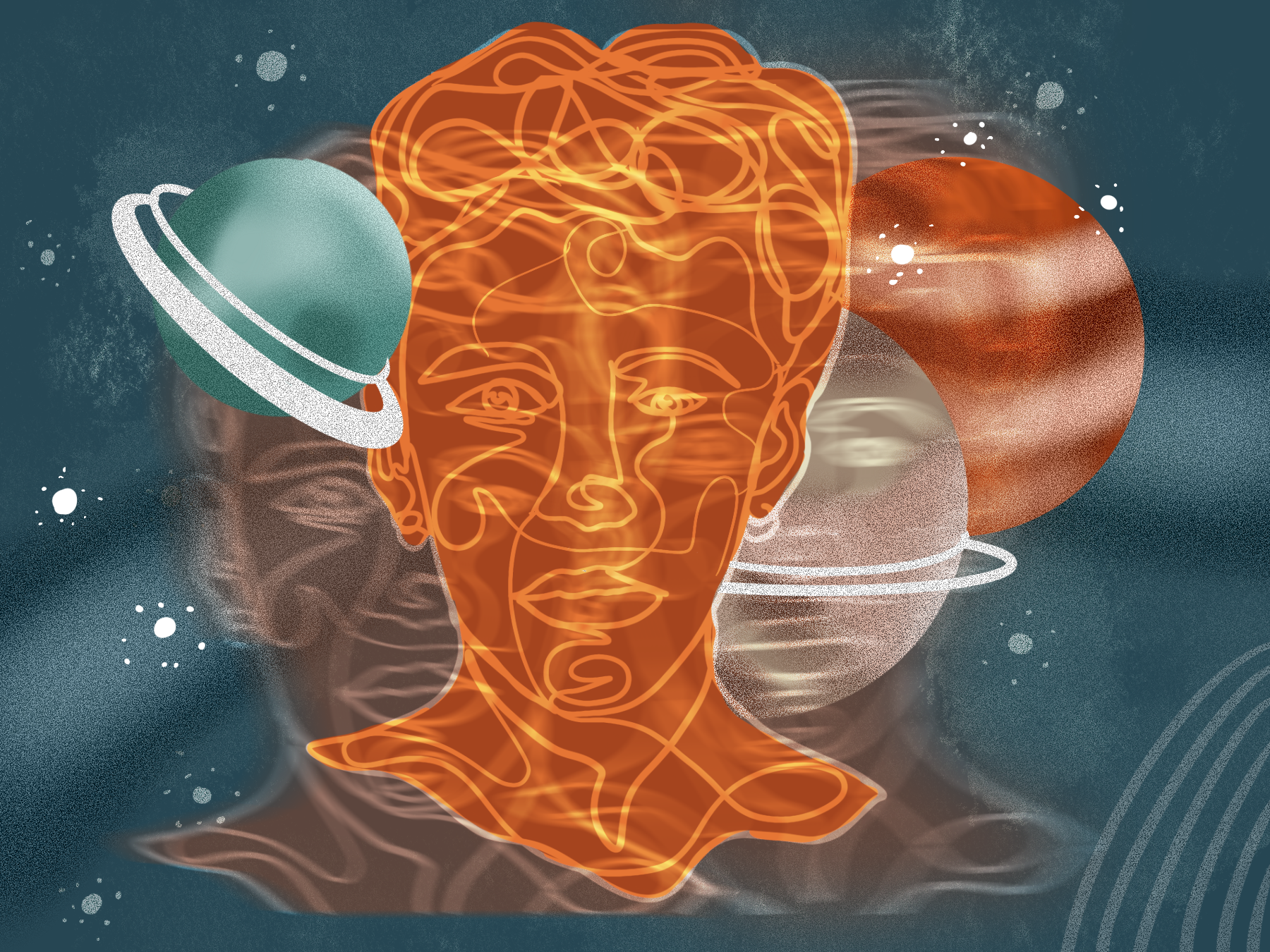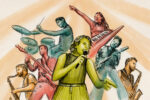Sleeping at Last is a musical project led by singer-songwriter Ryan O’Neal. The project seeks to understand the self and universe through EPs focused on various subjects, such as the Enneagram personality types, the composition of the Earth, the five senses and much more. Once enough EPs are released, the songs are combined into a bigger album titled “Atlas.” There are only two “Atlas” albums so far, but they capture the overall meaning of the Sleeping at Last project.
Included on the “Atlas: I” album are songs from the “Space” EPs about each of the planets in the solar system (including Pluto), as well as the sun and the moon. The songs are named after each body it discusses and are ultimately an examination of what each planet once meant to people throughout history. The album explores topics from philosophy to war to love, and it encourages thoughtfulness and introspection. These attitudes apply not only to the listeners themselves, but also to the universe in which they live.
Philosophy
The first track on Sleeping at Last’s album “Space” is called “Sun.” It discusses the creation of the universe and the potential existence of a higher power against a backdrop of instruments, particularly the piano and violin. A review from Tuned Up describes the song’s composition as “swelling” and “warm.” Both descriptions certainly suit a song about the sun and the light and life it provides.
The song’s philosophy is contained in the first few lines: “With golden string / our universe was clothed in light / Pulling at the seams / our once barren world now brims with life.” Later, O’Neal makes a direct reference to “God,” saying “We are the dust of dust / We are the apple of God’s eye.” O’Neal presents a theological interpretation of the creation of the universe with compelling lyricism and hopeful instrumentals. The philosophical undertones of the song are present in the lyrics: “We are infinite as the universe we hold inside / infinity times infinity.”
The lyrics of “Sun” address the complexity of humanity and the ways in which humans know as little about themselves as they do the universe. The song ultimately contemplates and appreciates existence, and it encourages both existential questioning as well as accepting the lack of answers.
War
Sleeping at Last also includes a criticism of war in the song “Mars,” which was named after the ancient Roman god of war. The song takes listeners through the character arc of someone who initially romanticizes war but later recognizes it as a tragedy. The first two verses of the song discuss the excitement of going to war as an action that “made our families proud.”
Verse three addresses optimism bias, which is when “we disregard the reality of an overall situation because we think we are excluded from the potential negative effects.” O’Neal’s voice gets louder throughout the verse to simulate the climax of a battle until it tapers off at the end and poses the question, “How our bodies, born to heal / become so prone to die?” This line encourages listeners to consider the true magnitude of war beyond the ways it can be glorified in the media.
Verse four discusses the effects war can have on a person’s mental health, stating, “So we found our way back home / let our cuts and bruises heal / while a brand new war began / one that no one else could feel.” The song addresses how mental illness is an invisible disability, meaning it disables the person who has it but it isn’t immediately apparent to others.
The final verse of the song completes the character’s arc. The first line, “We were young enough to sign along the dotted line,” is also the second-to-last line of the song. However, the tone of each line differs; the beginning verse is filled with anticipation, while the latter verse contains a tone of regret. The song’s final line, “Now we’re young enough to try to build a better life,” shows a character whose opinions have vastly changed, and they no longer look at war as something exciting and fulfilling.
Love
Sleeping at Last discusses many kinds of love on their “Space” album — from the romantic love in the song “Venus” (named after the ancient Roman goddess of love) to the love and loss of a parent in “Saturn.” An equally compelling focus on love is present in “Jupiter,” which details a person’s love for their work. “Jupiter” is about Galileo Galilei’s discovery of four of Jupiter’s moons in 1610. Galilei’s passion for astronomy is commendable because he risked death by the Catholic Church, who had immense power in Italy at the time, for his discoveries.
“Jupiter” addresses Galilei’s undying curiosity about the physical universe. The lines “I’m just a curious speck that got caught up in orbit, in orbit / like a magnet it beckoned my metals toward it” feel urgent. They encompass the passion that consumes individuals when they decide to focus the rest of their life on a specific topic. The last few lines of the song, “Make my messes matter / make this chaos count / let every little fracture / in me shatter out loud,” reference Galilei’s love for his work and the fear he experienced. He didn’t want his work to be for nothing, especially if he was going to die for it.
The song “Jupiter” is mostly instrumental, composed of joyful-sounding pianos and strings. It feels as though O’Neal is sharing the excitement of making such groundbreaking discoveries. The instrumentals of the song also possess another interesting quality: On the song’s lyrics page on Genius, O’Neal said, “If you listen close, you’ll hear some radio static that NASA recorded of Jupiter’s unique storm systems.” On Sleeping at Last’s official website, O’Neal also mentioned how he included background audio from the Apollo 11 mission in his “Moon” track. The inclusion of such little details shows how much O’Neal and Sleeping at Last care about the atmosphere of their album, even beyond the topics they discuss through their words.
Lasting Effects
Sleeping at Last’s Ryan O’Neal excelled in tying instrumentals, lyrics and vocals together to make an exceptional album. Despite addressing such heavy topics, the songs are still light enough to be enjoyed on a regular basis just for their beauty. Emily Obermeyer from The Central Trend noted that the album is perfect for “relaxing, studying, or even sleeping” and “taking a step back from a typically busy life.” Speculation and introspection are important in helping people find their own ways to understand, process and appreciate the world around them. O’Neal remarkably centered his album around one topic but branched it out into many diverse subjects, and the addition of stellar instrumentals and poetic lyrics makes his “Space” album truly unforgettable.

















